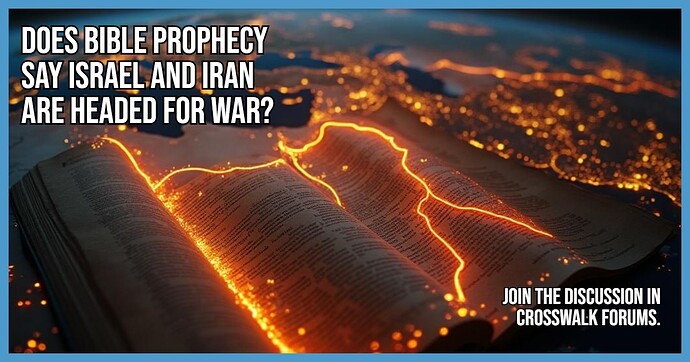Does Bible Prophecy Say Israel and Iran Are Headed for War?
As Christians reflect on the rising tensions in the Middle East, we invite your voice in Crosswalk Forums.
#IsraelIranConflict #BibleProphecy #MiddleEastWatch #news #prophecy #ChristianityToday
With missiles flying and tensions boiling between Israel and Iran, many believers are asking: Are we living in the fulfillment of end-times prophecy? Recent Israeli strikes on Iranian targets—including alleged nuclear sites—have reignited interest in Bible passages like Ezekiel 38, Isaiah 17, and Revelation.
Some prophecy scholars argue that Iran (ancient Persia) plays a key role in future conflict against Israel, aligning with other nations in a northern coalition. Others caution against using every war headline as a signpost of the end, noting that conflict in the region has existed for centuries. Still, the stakes feel higher than ever.
What should Christians make of the violence and volatility? Should we expect a coming war to usher in the tribulation—or do these passages point to a more distant future?
“Bible prophecy doesn’t give us dates, but it gives us directions.”
Read this breakdown of what some scholars believe about Israel, Iran, and what might happen next:
![]() https://www.washingtontimes.com/news/2024/oct/6/bible-prophecy-on-israel-iran-and-what-happens-nex/
https://www.washingtontimes.com/news/2024/oct/6/bible-prophecy-on-israel-iran-and-what-happens-nex/
How do you interpret these events through a biblical lens? Are we nearing the fulfillment of prophecy, or is this simply another chapter in a long history of conflict?
